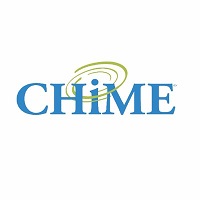 In a hearing convened by the Senate Committee on Health, Education, Labor and Pensions (HELP), witnesses outlined opportunities to improve health information exchange, citing the absence of a nationally-recognized identifier as an ongoing challenge to matching patients to their healthcare data.
In a hearing convened by the Senate Committee on Health, Education, Labor and Pensions (HELP), witnesses outlined opportunities to improve health information exchange, citing the absence of a nationally-recognized identifier as an ongoing challenge to matching patients to their healthcare data.
Senator Elizabeth Warren (D-MA) cited a 2012 CHIME study of 128 healthcare CIOs and other senior healthcare leaders in which nearly one-fifth indicated that their hospital had experienced an adverse event during the course of the year due to a patient information mismatch. The Senator spoke to the dangers of patient mismatches and called on witnesses to articulate what Congress and the Office of the National Coordinator for Health IT (ONC) can do to solve this patient safety issue.
CHIME member Craig D. Richardville, MBA, FACHE, Senior Vice President and Chief Information Officer at Carolinas HealthCare System, was among the witnesses that pointed to the need for a consistent method by which to identify patients. Richardville described the palm scans done within his system, resulting in a 99 percent match rate, but emphasized that the near-perfect match rate is only within his systems.
“This is one of the most public and noteworthy conversations that has taken place on the issue of patient identification,” said CHIME Interim Vice President of Public Policy Leslie Krigstein. “It’s time that Congress recognize the inability to accurately identify patients is fundamentally a patient safety issue.”
The College of Healthcare Information Management Executives (CHIME) has long been an advocate for the accurate, efficient matching of patients with their healthcare data to radically reduce medical errors and save lives. In an effort to find a universal solution for accurately matching patients with their healthcare information, CHIME announced in March that will launch a $1 million challenge later this summer on the HeroX platform.
The hearing, entitled “Health Information Exchange: A Path Towards Improving the Quality and Value of Health Care for Patients,” featured a panel of industry stakeholders gathered to evaluate solutions for improving interoperability. The hearing is one of several being held by the committee to evaluate electronic health records (EHRs) and the promise of health IT.
In addition to Richardville, witnesses included Christine Bechtel, Advisor to the National Partnership for Women & Families and Chair of the Health IT Policy Committee Consumer Workgroup; Neal Patterson, CEO of Cerner; and Thomas H. Payne, M.D., Chair-Elect of the American Medical Informatics Association (AMIA) and Medical Director of IT Services at UW Medicine, University of Washington School of Medicine.
Despite the nation’s progress with HIT implementation and adoption, Richardville testified that the current health IT ecosystem continues to be a challenge for providers due to lack of interoperability between EHR systems.
“Cost-effective, efficient, and easy to use and integrate health information is foundational to advancing and providing excellent care in this country,” he said. “Patients and care providers are missing opportunities to improve people’s health and welfare when information is not easily available.”
Richardville outlined several factors for creating a pathway to achieving interoperability including a functional set of standards, data transparency and government-led collaboration among providers, patients, vendors and payers.
“We need clear rules of the road for providers and vendors alike through establishment of functional data and transport standards, methods to measure and test functionalities, with enhanced enforcement tools for regulatory bodies to drive compliance in the marketplace,” Richardville told the committee.
CHIME commends the committee for their ongoing efforts to identify resolute policy actions that can facilitate better patient care through the use of health IT systems.
About CHIME:
The College of Healthcare Information Management Executives (CHIME) is an executive organization dedicated to serving chief information officers and other senior healthcare IT leaders. With more than 1,500 CIO members and over 140 healthcare IT vendors and professional services firms, CHIME provides a highly interactive, trusted environment enabling senior professional and industry leaders to collaborate; exchange best practices; address professional development needs; and advocate the effective use of information management to improve the health and healthcare in the communities they serve.
